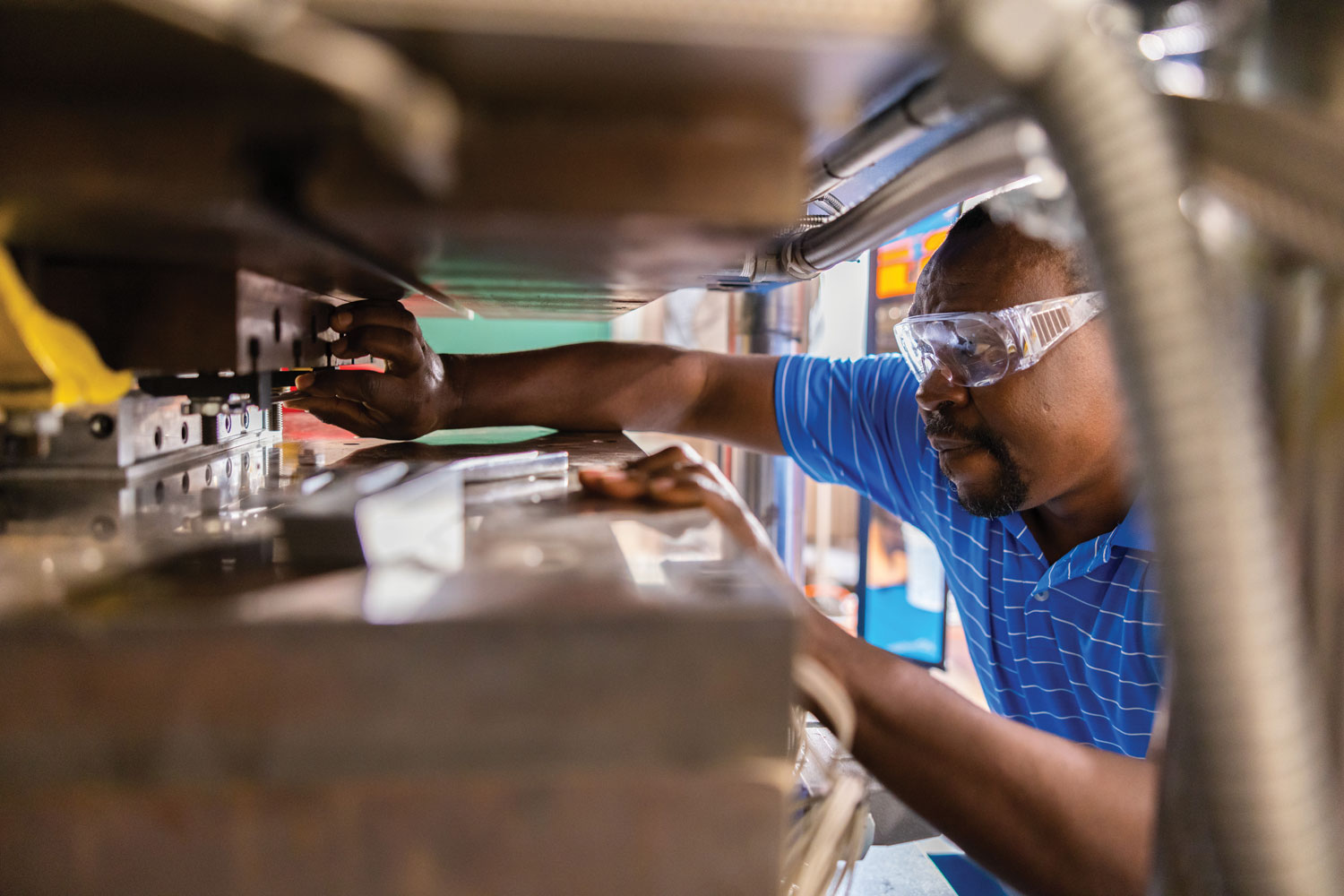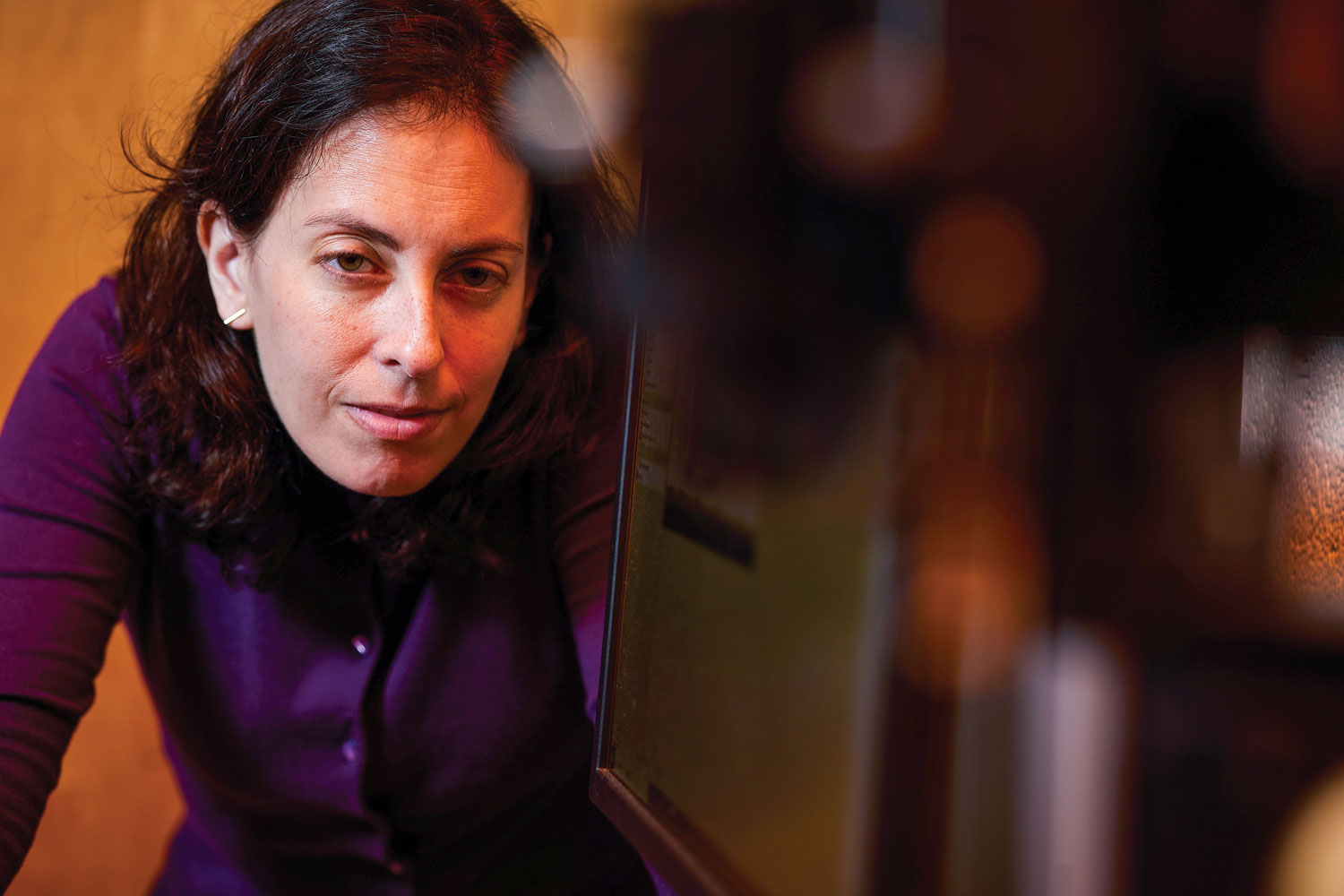A high school senior walks with their parents around the University of Tennessee’s Knoxville campus, taking in the sights, sounds, and scenery that encompass student life.
It’s a rite of passage that has gone on for generations, with the buildings themselves serving as one of the few constants on an ever-changing campus.
The decision on where to attend college is a building block in the life of any student, one that has been amplified by the Tickle College of Engineering’s elevated status brought on by years of careful planning, execution, and growth.
While the student in question in the future scenario is a generation away from having to make their decision, the change at the campus level has already begun. It is real. It is tangible. It is part of a…. College on the rise.
There’s an old saying that is typically used in sports, but one that can hold relevance in everyday life as well: Records are made to be broken.
Consider that thought when thinking about the Tickle College of Engineering in recent years.
- Record enrollment.
- Record representation of female and historically underrepresented populations.
- Record patents filed and awarded.
- Record research expenditures.
- Record faculty, with another surge in new positions on the way and, in fact, already taking place.
When you add it all together, it is easy to see that the solid foundation of the Tickle College of Engineering of today will fuel it to be a hallmark institute of higher education of tomorrow.
“We’re not taking the route of aligning ourselves to be successful solely in the near-term future, but rather we are taking an approach that will elevate our college, expand its offerings, and position it to be a leader in certain areas,” said Dean Matthew Mench, the Wayne T. Davis Dean’s Chair of the college. “This is our 185th year, and, while we’re not presuming to lay the course for the next 185 years, the actions we are taking today should at least start them out the right way.”

The Student Experience
New spaces and new faculty lines are nice signs of growth on their own, but the ultimate factor in the success of a college is the outcomes it provides its most important stakeholders: its students.
In just the last decade, the college’s overall enrollment has surged more than 32 percent, to a total of 4,899 in the 2022-23 school year.
Strides have also been made to increase the number of women in engineering as well as the number of students hailing from historically underrepresented populations, with both percentages rising thanks to those efforts.
It isn’t just about the quantity of the students coming to the college, but the quality of their academics that has soared as well, with the average first-year student having more than a 4.26 weighted grade point average and better than a 31 on the math portion of the ACT.
And what do those students find when they begin their academic journey at UT, whether they are at the undergraduate or graduate level?
Opportunities, support, and encouragement, in abundance.
“We are big believers in providing hands-on research experience to students of all levels and across all disciplines,” said Mench. “Classroom education will always be important, but one of our core missions as a state land-grant university is to develop and enhance the skills that people need to be successful in a given field, and there is no better way to do that than through actually experiencing that work first hand.”
Outside the classroom, the college supports its students through a number of efforts, not the least of which is a team of professional advisors that work with students on specific issues that might arise related to their particular discipline.

Adding, Supporting Faculty
Having the best and brightest students possible means nothing, of course, without having a world-class faculty to teach them.
There, again, the college has had growth both quantitatively and qualitatively, going from around 130 faculty to around 180, with plans to add 30 or more additional faculty members in the coming years.
The UT-Oak Ridge National Laboratory Governor’s Chair program currently has 13 professors who were brought in from leading universities for their sought-after expertise in their given fields, 11 of whom have appointments within the college.
At the university level, the provost has announced the creation of the Cluster Hire Initiative, a $50 million-funded project to tackle seven areas through cross-discipline related research that it has identified as grand challenges: Bioinformatics, Genomics, and Quantitative-based Solutions for Food Security; Climate-Smart Agriculture and Forestry; Food and Nutrition Security; Foundational Artificial Intelligence: Closing the Gap to Human Intelligence; Future Mobility; Precision Health and Environment; and Science-informed Artificial Intelligence.
We’ve built out our faculty in such a way that we are tackling emerging issues and opportunities and thinking ahead to solve the problems of tomorrow.”
The college is playing a major role in six of the seven initiatives with the ones dealing with artificial intelligence, mobility, and health being led by TCE faculty.
Many of the more than 30-plus new hires in the next 3-5 years will come as a direct result of the college’s role in helping the university take on these newly identified challenges, which will, in turn, broaden research opportunities for students at all levels.
“We’ve pointedly worked to develop a faculty profile that provides a foundation for an education that not only tackles the classic topics engineering helps solve, but, with a forward-thinking view. We’ve built out our faculty in such a way that we are tackling emerging issues and opportunities and thinking ahead to solve the problems of tomorrow,” said Mench. “We are encouraging our faculty to think big, think about the future, and consider how they can work across disciplines to the betterment of the world around us.”
To learn more about the college’s planned cluster hires, visit tickle.utk.edu/clusters.

Room To Grow
While the students, faculty, and staff of a college are its heart and soul, they need places to study, to conduct research, and to collaborate.
Over a little more than a decade, the college has added close to 630,000 square feet of academic and research space in four new buildings, including the recently opened Zeanah Engineering Complex, which is the largest academic building at UT with 228,000 square feet.
The UT Space Institute in Tullahoma was brought under the Tickle College of Engineering umbrella in 2022, and it now includes a satellite office in Huntsville, Alabama, to provide educational opportunities to the many aerospace and defense industry employees who work there.
Closer to home, the college has moved several of its massive additive and advanced manufacturing machines to a space in Hardin Valley, about halfway between UT and ORNL.
While still years from coming to fruition, the university’s recently announced campus master plan includes several new buildings or renovations on both the Knoxville and UTSI campuses.
“We’ve had a lot of growth, but we’ve got even more in store ahead,” said Mench. “Now is a great time to be an Engineering Vol, and that’s something that is only going to get better. We’re just getting started.”
Growth. With a purpose.
